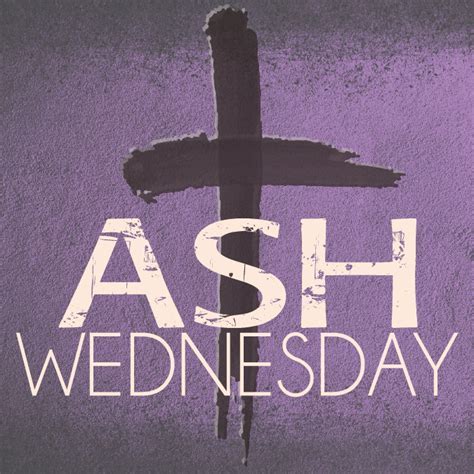Where do you see yourself in forty days?
I’m sure many of us have had to answer some version of that annoying question when applying for a job. You know: “Where do you see yourself in five years? Ten years?” But I ask that question today because I think we have to decide what getting ashes on our foreheads today means for us. If it’s just to check a box, or avoid the question “I thought you were Catholic?” at work, or to prove to Mom that we made it to Church, then we’ve missed an opportunity. Ash Wednesday is the busiest day at any Catholic Church hands down: busier than Christmas, and busier than Easter. And it’s really good that we are here today to mark the beginning of Lent, but seriously, where do you see yourself in forty days?
The hope is that today we get reminded that we are dust, and to dust we shall return; and warned that we need to repent and believe in the Gospel. Then we take those admonitions and unpack them for forty days by engaging in fasting, almsgiving, and prayer, so as to rise on Easter Morning, greeted by the Morning Star that never sets, a new creation that has died and risen with our Risen Lord. That’s where we need to see ourselves in forty days.
They (whoever “they” are!) say that it takes 21 days to start a new habit. So in forty days, we should be able to really accomplish something important. So if we find ourselves right now looking for a better relationship with God, a better relationship with the people in our lives, or wanting to be happier, more positive people, then the traditional Lenten disciplines of fasting, almsgiving, and prayer, if we really engage them, can make a huge difference in our spiritual lives, and in our lives in general.
Maybe this year we will fast from spending so much time on social media, or on our phones or tablets in general, and really take an interest in the people in our lives. Maybe we will fast from the negative influences in our lives, whether that be news or media in general, or relationships with people that drag us down. Maybe we will fast from negativity, and choose to look at people differently, asking God to give us the grace to see them as he does.
In almsgiving, maybe we will take the time to really give of ourselves. Yes, we can write the check to help any number of charities, but maybe we can also make a meal or even just a dessert for a lonely neighbor or relative. Maybe we will give alms by making time with our family a priority. Or maybe we will even volunteer to mentor someone in need, or to assist in faith formation here at church.
For prayer, maybe this isn’t the only time we do daily Mass during these forty days of Lent. Perhaps even just a day or two a week before work or whatever the day’s agenda may be. Or, we could visit the adoration chapel for fifteen minutes once or twice a week. Or, maybe we try a new devotion like a daily Rosary or reading a few paragraphs of the Gospel of Luke every day.
Forty days of some combination of that can really affect our relationship with God and our relationships with the people in our lives in an amazingly positive way. And doing this, we don’t blow the trumpet and say, “Hey, look at what good things I’m doing!” No, we do it unassumingly and note with joy the changes it makes in our demeanor.
I hope this Lent is incredibly powerful for every one of us; that it makes our Easter Morning all the more joyous; and that it changes us in ways that will make our lives better for years to come.
Where do you see yourself in forty days?








You must be logged in to post a comment.